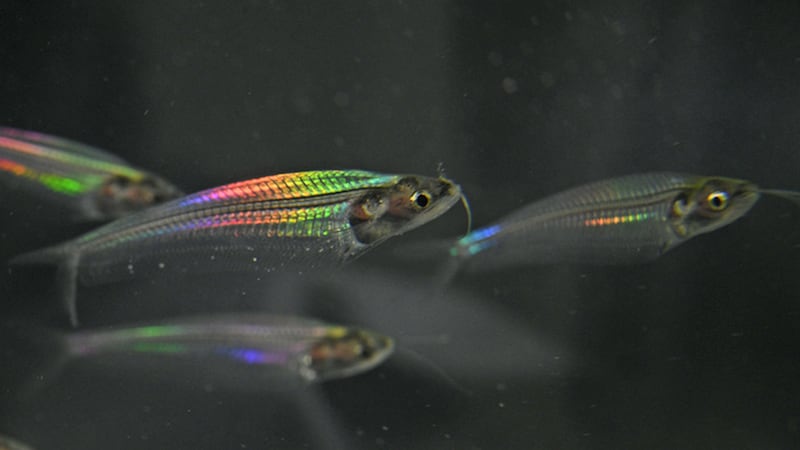If you’re a millennial, there’s a good chance you’ve read The Rainbow Fish, a delightful children’s book where the titular character is illustrated with shiny foil that seems to glitter with all colors of the rainbow. It turns out it isn’t the only multi-colored fish out there either.
The ghost catfish, endemic to Thailand, is another that loves to show off its dazzling array of colors. That might come as a surprise at first glance: the fish is almost completely transparent. When the light strikes it just right, though, the creature seems to glow with all the colors of the rainbow.
In a study published on Monday in the journal Proceedings of the National Academy of Sciences, researchers found out why exactly this happens. Using a combination of X-rays, laser lights, and electron microscopy, the study’s authors were able to find distinct optical properties in the fish’s skin and muscle that allow it to cast the dazzling array of light.
Specifically, the ghost catfish’s muscles have unique bands of muscle that are stacked on each other like sheets. When light passes through them, it gets diffracted through each layer and eventually appears as a rainbow. As the muscles relax and contract while the fish swims, it creates an almost glittering effect.
Though other fish have similar muscle structures, the ghost catfish’s translucent flesh allows the light to easily pass through it and create the dazzling illusion of literally glowing with rainbows. In fact, the authors note that more than 90 percent of light is capable of passing through the ghost catfish.
The study’s authors note that this is fairly distinct when it comes to other aquatic creatures—even ones with rainbow coloring like the rainbow fish. This is because the ghost catfish’s coloring doesn’t come from its surface level, but rather the muscles itself.

Despite its transparent skin and muscle, the ghost catfish glows with a dazzling rainbow shimmer under a light.
Nan Shi, Xiujun Fan, and Genbao Wu.“The diffraction colors respond dynamically to muscle relaxation and contraction as the fish swims, which enables the fish to show flickering iridescence in different angles,” the authors wrote. “Our finds provide a new angle to reveal nature’s secrets of structural colors.”
Unlike the ghost catfish itself, it’s still not clear why they have this iridescent property. However, the study’s authors say that the colors could have biological purposes such as “camouflage or communication.” Of course, more research is needed to verify the true reasons why.





